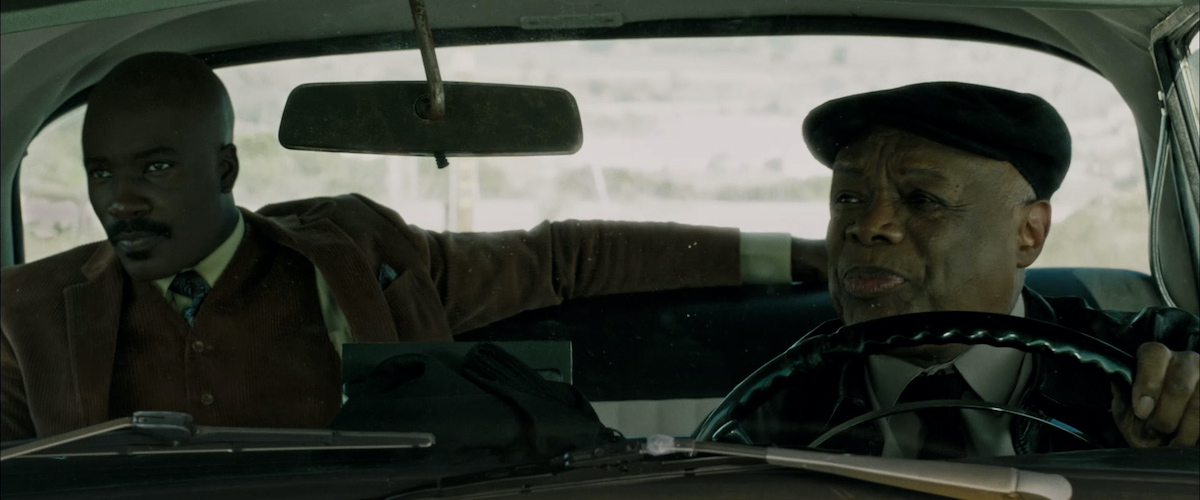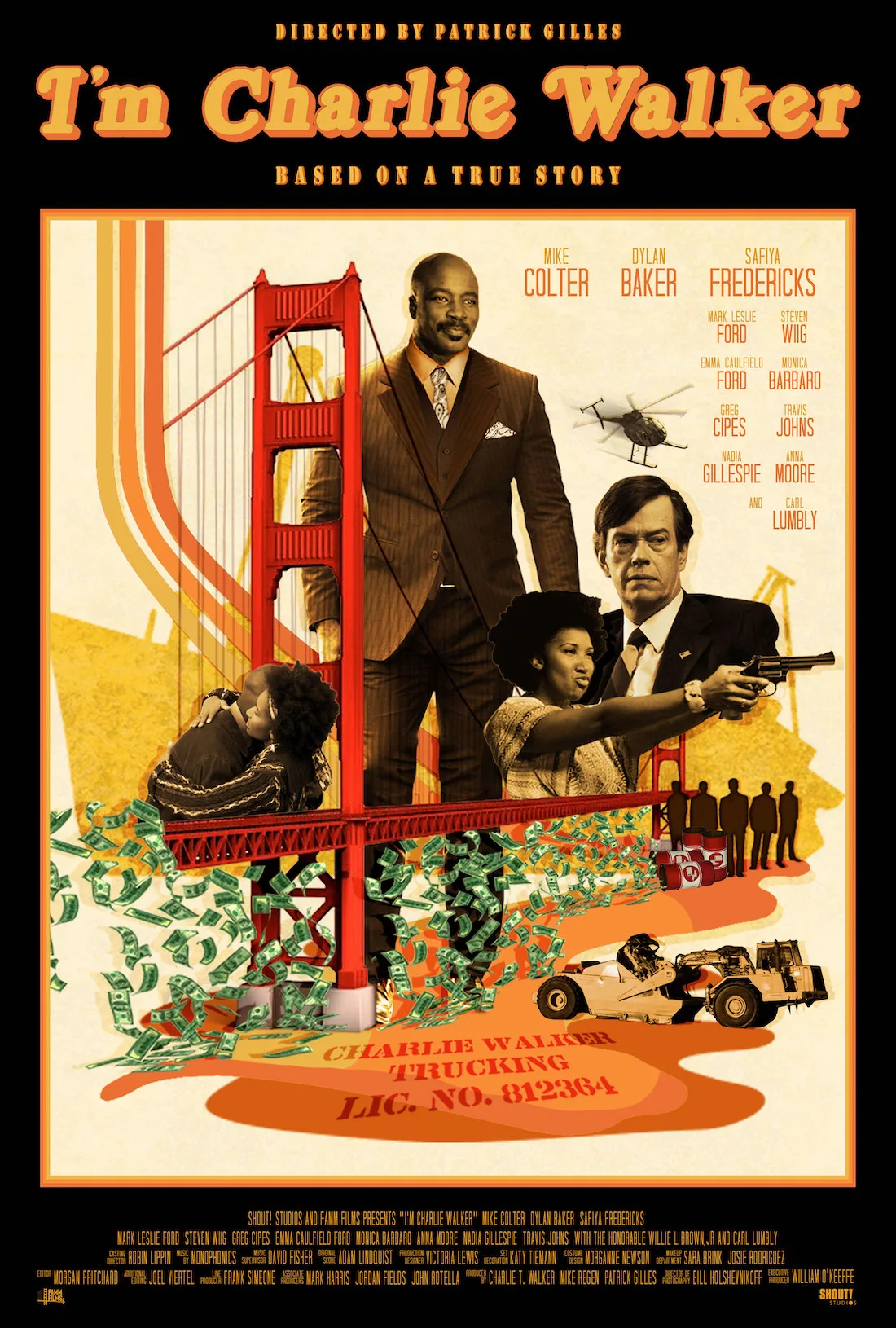Few things irritate me more than the words “Based on a true story.” “I’m Charlie Walker” illustrates why. Anyone looking for truth in a movie is a damn fool, as the Coen brothers so humorously proved with “Fargo.” However, that phrase exists to give filmmakers license to throw incredulous plot details and unsupported information onscreen and expect viewers to take them on faith. Those five words always make me do my homework, and worse, put me on guard. Thankfully, writer/director Patrick Gilles saves me the trouble of having to dig for details. He ends the film with the following words: “All characters and events in this film, even those based on real individuals, are completely fictional.”
This feels less like betrayal and more like B.S. I wondered if the real, unembellished story were more interesting. Especially after the screen that follows the aforementioned tells us that the real Charlie Walker was charged with 23 felonies and served time in the 1980s. It’s implied that some of these charges were trumped up, possibly due to Walker’s race. I thought, “Wait, what?! Is that true or not?” You can’t just throw something like that in at the end as some kind of “oh, by the way people…” detail. We also see the real Charlie Walker, who tells us what he did with the money the film shows him earning. He seems like a fascinating character just from the little we see of him.
The fictional Charlie is played by Luke Cage’s Mike Colter. Walker is a Black man who owns a truck. He deals with everyday racism as he tries to get gigs in San Francisco. His wife Ann (Safiya Fredericks) narrates the movie with descriptions that constantly tell us how smart, cunning and wonderful her husband is. Her words put a hat on top of a hat, because the movie itself is equally in love with Charlie’s antics. Colter is such a charismatic presence, a smart, funny and commanding force, that we’re willing to follow him anywhere. “I’m Charlie Walker” squanders that goodwill by making Charlie stubborn but flawless. Every move he makes is the correct one, even if it’s legally suspect. Not since Morgan Freeman’s Joe Clark in “Lean on Me” has a real-life person’s ass been kissed more by a movie. At least that movie had superior lips.
Due to the timeframe, “I’m Charlie Walker” looks a lot like a Blaxploitation movie. The poster alone immediately reminded me of the era. That sense of time and place, with its costumes, hairstyles and distrust of the Man, is the best thing about the film. I imagined Jim Brown in Colter’s role, navigating the drugs, hippies, racists, and evil businessmen that populate this film. One minute, Walker is sweet talking a contractor into integrating his team, the next, he’s beating the crap out of bodyguards sent by the film’s Mr. Big to manhandle him. The villain here is oil company president Bennett (Dylan Baker). No stranger to playing bad guys, Baker makes a fine, smarmy foil for Colter’s cool demeanor.
Baker is the head of the oil company whose tanker has crashed outside San Francisco, sending its contents all over the beaches of the Bay area. The hippies want to save the wildlife and the coastline. Bennett wants to save face. Charlie Walker just wants a job using his truck to help with the cleanup. After convincing trucking bigwig Chuck Sumner (Lyle Kanouse) to help him get an assignment, Charlie picks the worst possible beach upon which to navigate trucks. Wouldn’t you know that most of the oil suddenly shifts direction and starts landing on Charlie’s beach? “Money is no object for cleaning this up,” he’s told by the oil bigwigs. Our hero takes that suggestion as a challenge.
Much is made about Charlie being a Black boss to whom White men must answer. The peace and love crowd are cool with it, but they’re in the minority. Ann catches fake police officers breaking into her house in an attempt to frame her husband for drugs. Chuck and Bennett are OK with having “one of those people” working on the assignment, but aren’t so happy once his efforts start showing them up. Ever the hustler-slash-marketing wizard, Charlie starts appearing on San Francisco T.V. to promote just how much better he’s doing than those White folks. I can fully believe how uppity they thought Charlie was. It’s unfortunate how cartoonish Gilles depicts this.
Until its trashy climax, “I’m Charlie Walker” never gives insight into Charlie’s thought process or how he comes up with the ideas for a job he’s never held before. Ann just keeps telling us how great he is. “Show, rather than tell!” I wrote in my notebook. But credit where it’s due: we’re given two great scenes with a cab driver played by former San Francisco mayor Willie Brown. Since he started his political career in the 1960s, Brown fits right into the time period. He tries to give Walker some advice, “wisdom from the old heads,” as we used to call it in my ‘hood, but Charlie doesn’t listen. Brown matches Colter beat for beat, and their scenes crackle with an honest reality that’s sorely lacking for the rest of this film’s short, 78-minute runtime.
Now playing in select theaters and available on demand.




















